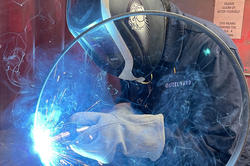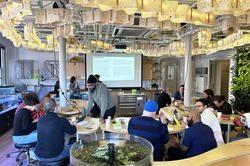Recent grant recipients take on projects that call on art and design skills to explore complex topics.
SPUR-funded RISD Student Research Advances Sustainability and Social Equity
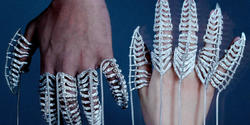
Six student projects are using SPUR funding granted through Research & Strategic Partnerships to support extracurricular research promoting social equity, sustainability and the power of design thinking—central pillars of RISD’s strategic plan. Available to students and new graduates, the grants are awarded for projects whose methodologies reflect diverse perspectives, utilize experimental approaches and provide innovative solutions.
Several of the most recent awardees are using the funding to work outside of their major fields of study. Sculpture major Buzzy Martin 25 SC is exploring sustainable apparel design, Architecture major Seungwoo Hong BArch 25 is integrating traditional Kundan jewelry-making techniques with digital tools such as Rhino3D and Blender, and an interdisciplinary team of students is exploring the world of publishing via the recently launched desi-gned magazine.
“RISD students are unafraid to step out of their own disciplines to try something new,” says Director of Research Soul Brown. “It’s what we hoped for when we began SPUR: that the next generation of creatives would innovate research by using diverse, interdisciplinary methods to explore a range of subjects.”
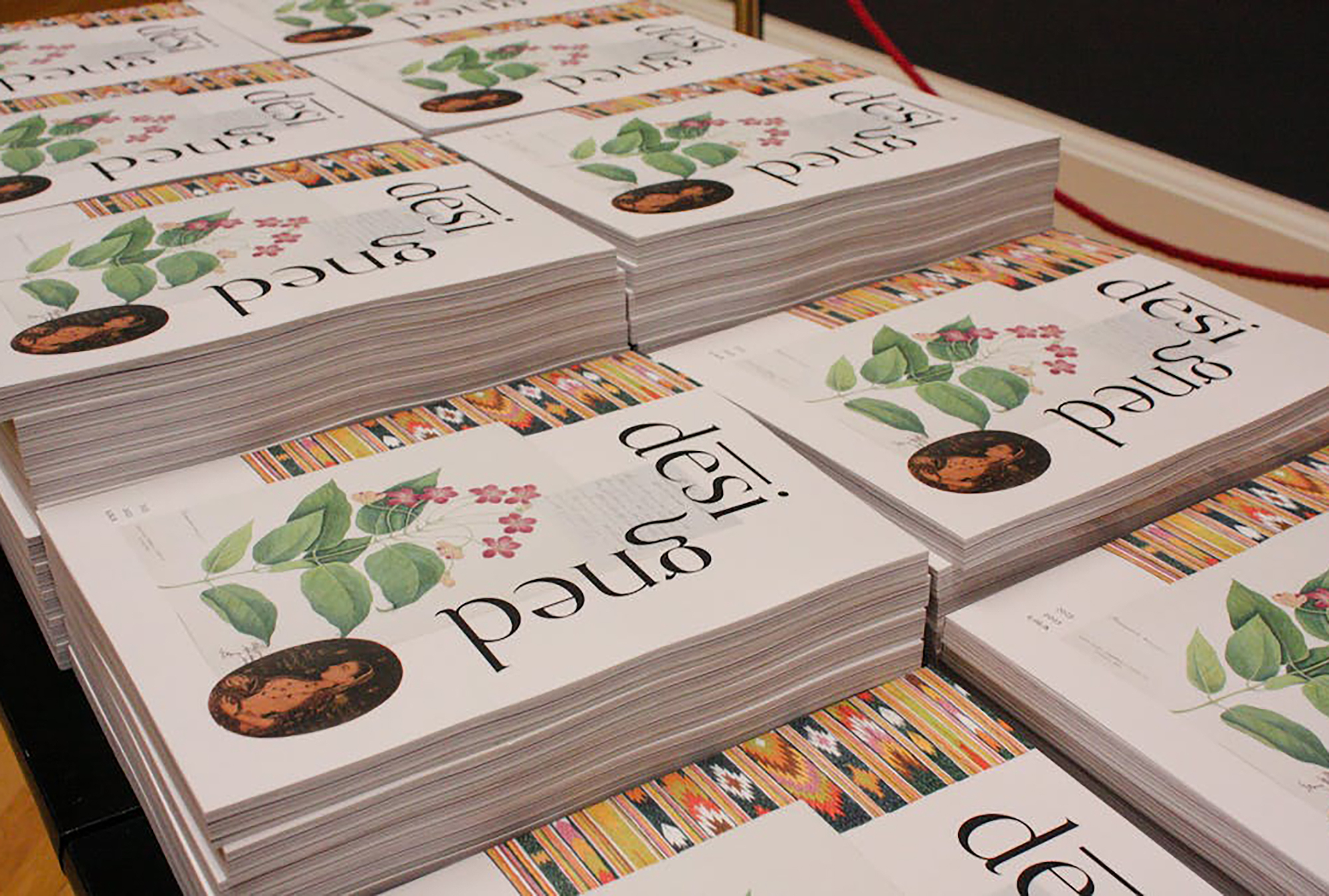
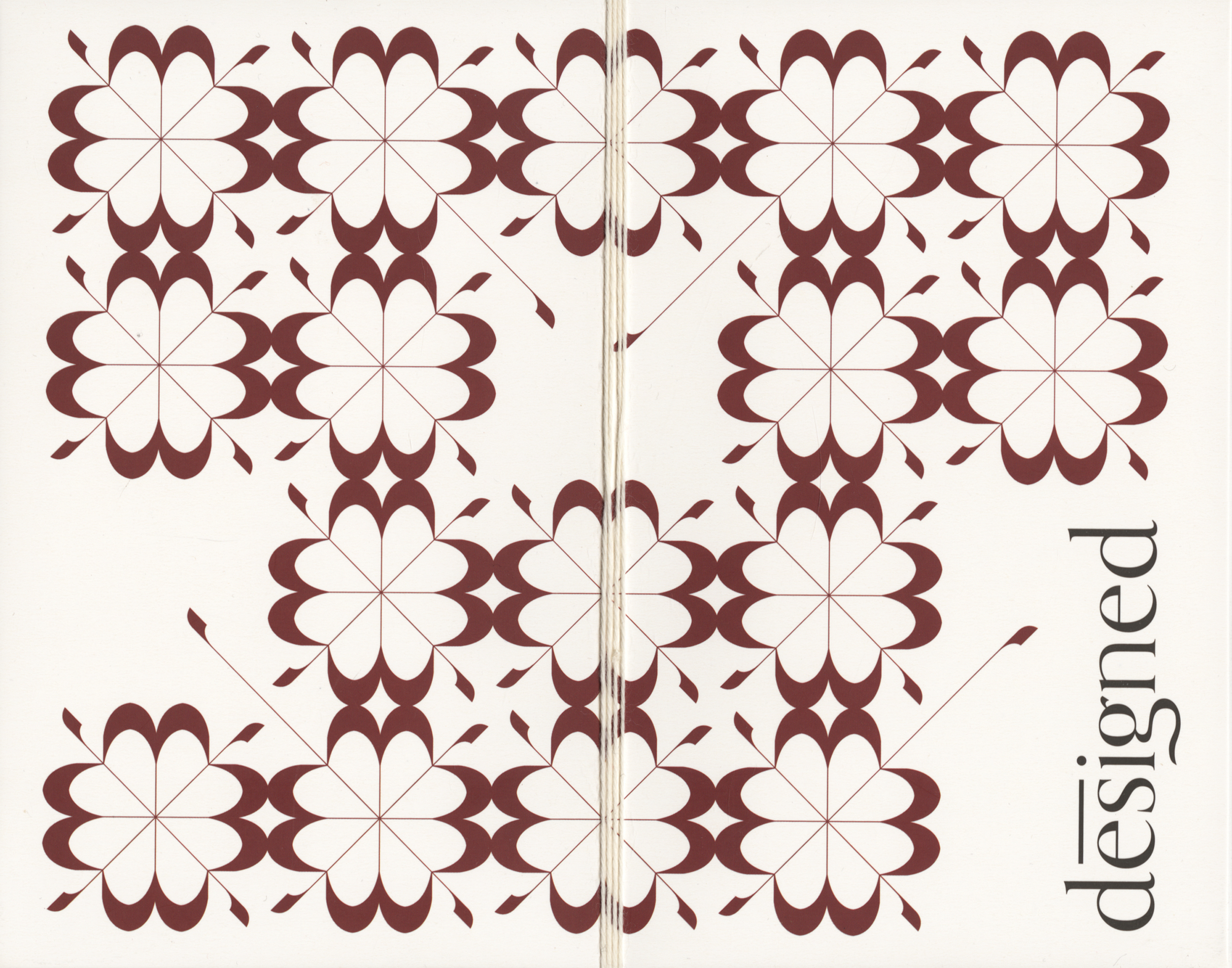
The desi-gned team applied for SPUR funding to support the second issue of the publication, which is focused on South Asian culture, design and art and was launched in 2023. Published in May and created collaboratively by Anant Saraf BRDD 27 PH, Radhika Chauhan 25 GD, Sejal Gupta 25 GD and Chahak Surana 26 GD, the second issue “reinterpreted and recontextualized omnipresent fragments of the contemporary” via features about Vastu Shastra, the Hindu science of architecture; modern-day iron foundries in India’s West Bengal region; the Hindustani linguistics of color; and much more.
“Despite the large South Asian community in New England, and especially at Brown and RISD, there is a lack of communal spaces for people who identify as South Asian,” explains Editor-in-Chief Harsh Thakkar BArch 27. “desi-gned is a living archive of ingenious craftsmanship, subaltern histories and current contemplations—untold ‘desi’ stories that need to be shared,” add publication co-founders Yukti V. Agarwal BRDD 24 TX and Mehek Gopi Vohra BRDD 24 GD.
Also tied to South Asia, Hong’s project—Fabricate Between the Body (see top image)—aims to bridge the gap between traditional Indian craftsmanship and modern technology in the field of biophilic and bio-inspired wearables. Hong says he became enamored with interdisciplinary research and form making during a 2019 course called Bodyscapes offered through RISD’s Architecture and Apparel Design departments.
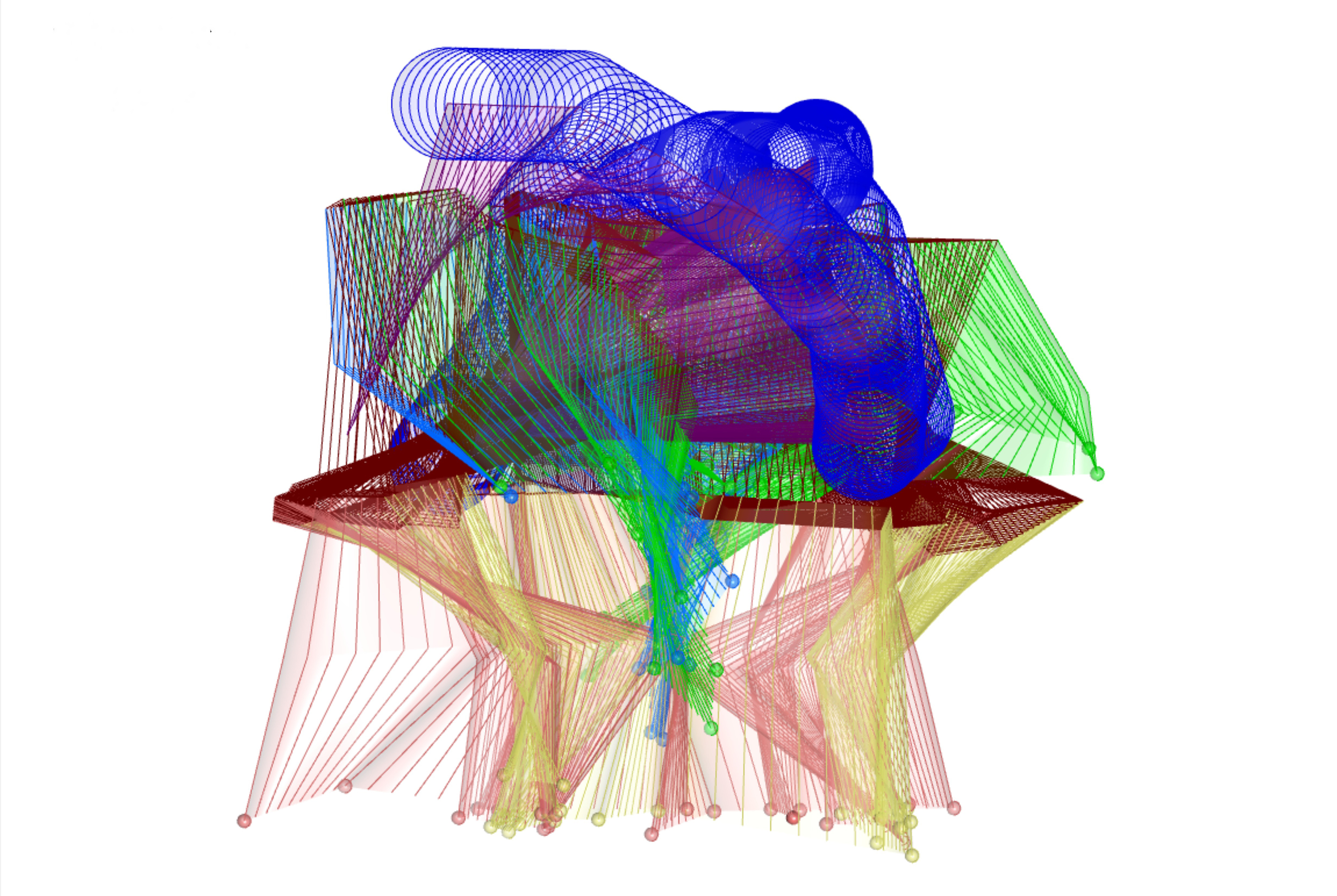
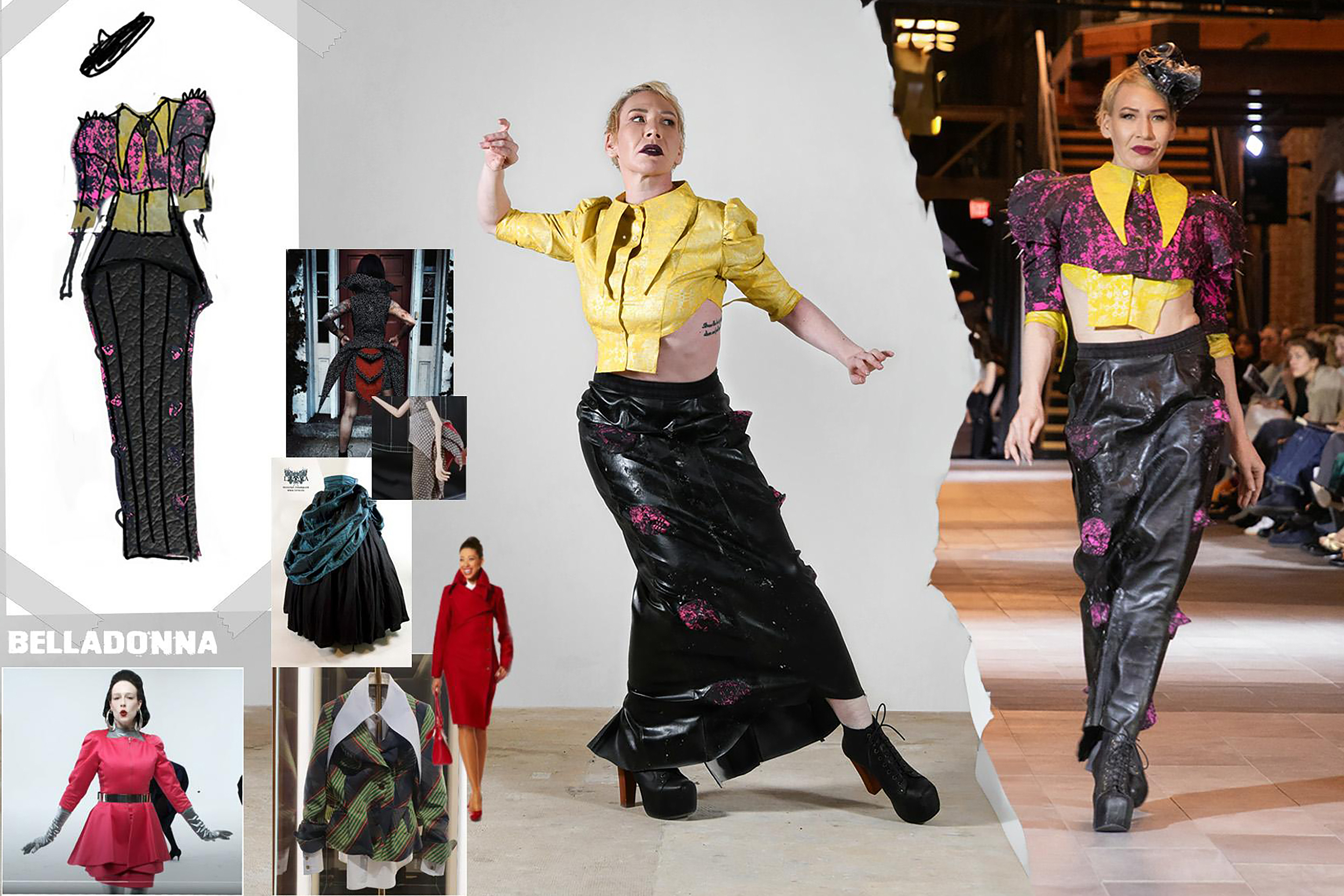
Hong put his grant money toward visiting Jaipur, India during Wintersession 2024 along with the India Sensed class led by (his project advisor) Catherine Andreozzi 87 AP and faculty member Joy Ko. “Ultimately, the project seeks to promote sustainable and culturally enriched wearable design and contribute to a more inclusive future for the field by increasing digital accessibility for local artisans and minimizing material waste,” he says.
Martin is also focused on reducing waste in designs for the body, in their case dystopian apparel presented through Brown’s fashion@brown club. They intend to use their SPUR funding to finance their next runway show inspired by punk, sci-fi and the designer’s Welsh heritage. “The goal is to realize my brand identity and make pieces that can be replicated,” they note, “but most importantly, to collaborate with creative people from the local community and produce an unforgettable event.”
Other current students who were awarded SPUR funding are working within their majors to make change. Industrial Design grad student Alana Aamodt MID 25 used her funding to travel to Boston and present her work at the international Design Research Society 2024 conference in June. The work she shared is the final phase of a five-year project based on designing Rube Goldberg machines (or chain-reaction toys) that blend physics and art to teach kids creative design engineering skills.
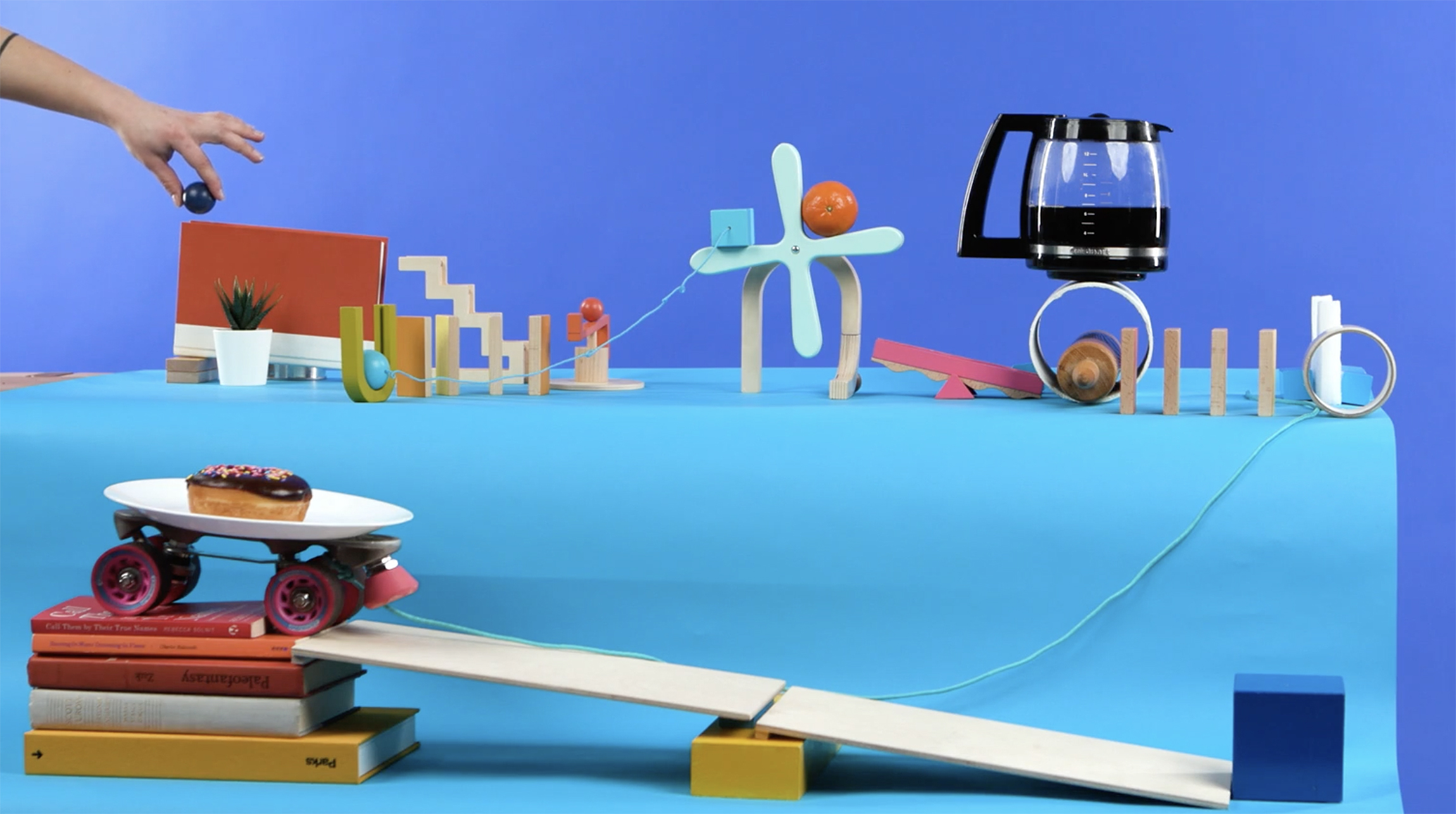
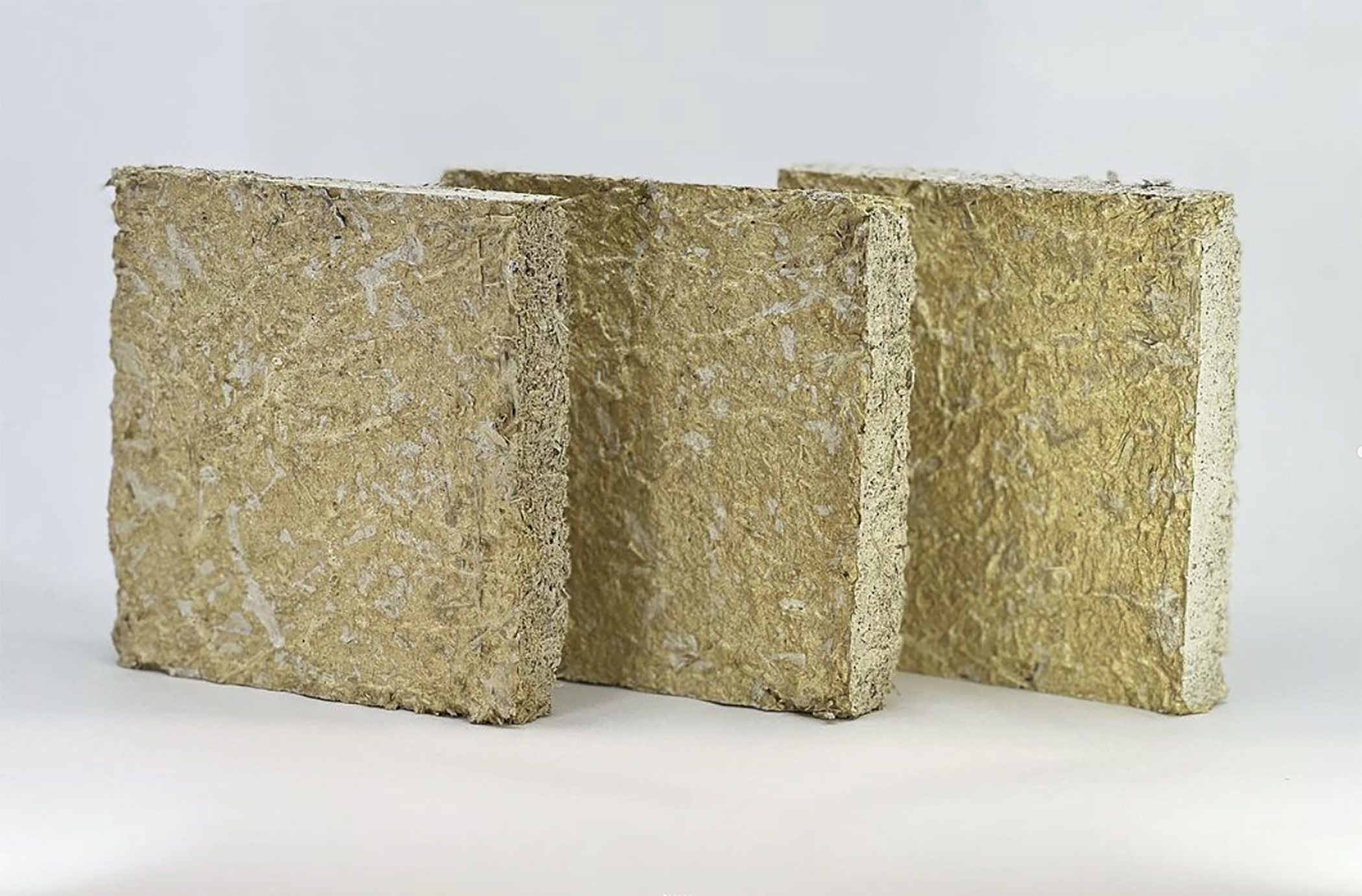
“The paper synthesizes the development of the company I founded with my friend Anna, Momentix Toys,” Aamodt says. “We noticed a lack of women in our physics classes and wondered how we could make a toy that combined our love of physics and art and kept more types of kids interested in STEM.” After much testing and iterative design, the pair came up with 23 wooden pieces that “nudge, roll, spin and tilt, transforming household objects into funky chain reactions.”
Fellow grad students Taylor Jais MLA 25, Chloe Kahn MLA 25, Corey Watanabe MLA 24, Sophie Kaplan-Bucciarelli MLA 26 and Mary Ritchie MLA 26, all earning their master’s degrees in Landscape Architecture, are also pushing for change: Jais and their partners through the cultivation of bio-receptive materials that promote coastline resilience and Ritchie and the BRACKISH collective by developing landscape-inspired educational workshops for underserved high school students.
Jais, Kahn, Watanabe and Kaplan-Bucciarelli have been working on a project called Rematerializing Coastal Resilience that responds to increased storm events and sea level rise, not with traditional concrete seawalls but ecological alternatives made of phragmites (or common reeds) that support the local habitat. “We’re asking questions like ‘What would happen if we softened coastlines instead of hardening them?’ and ‘How do we work with water and not against it?’” they explain.
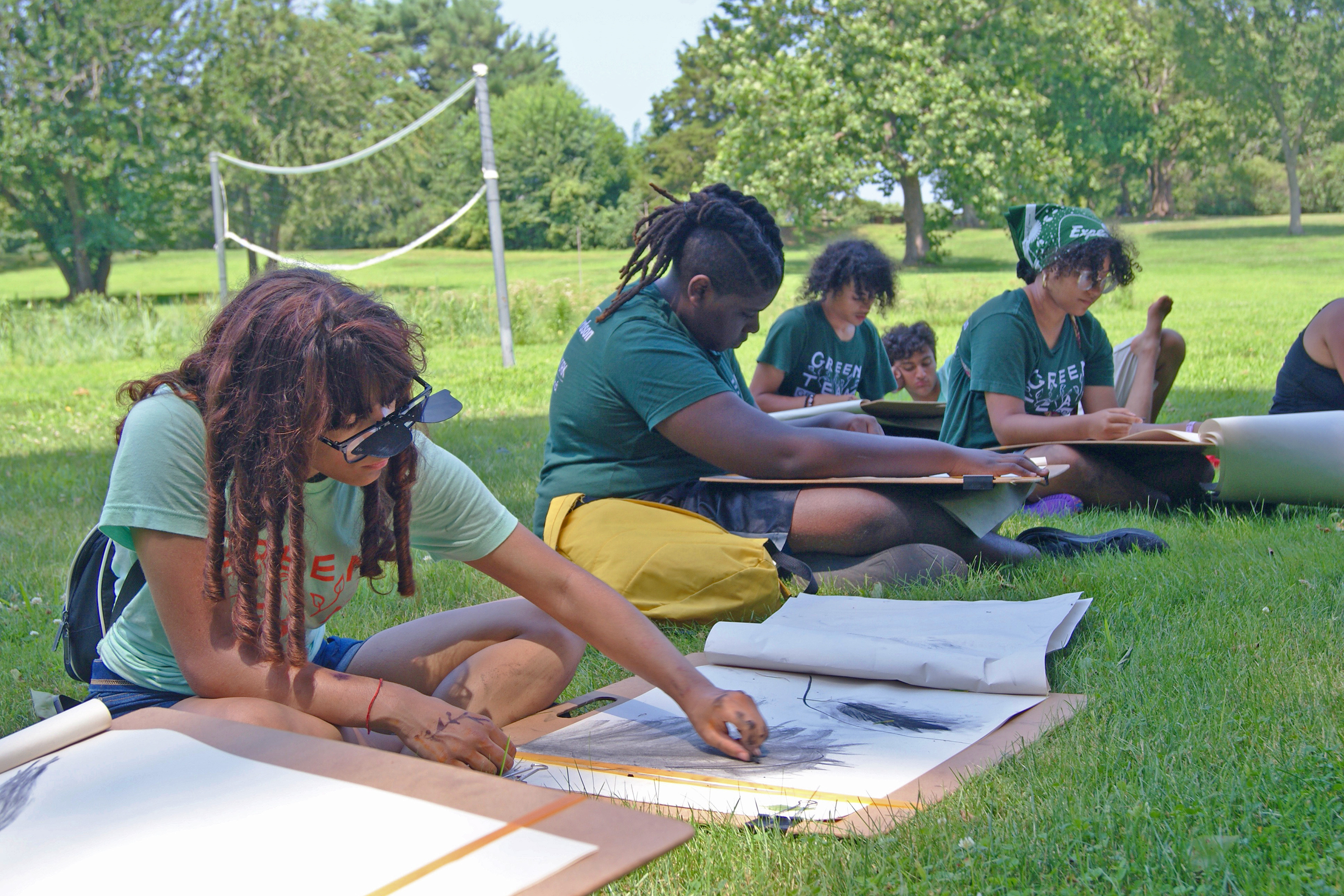
“We see [the workshops] as ecosystems in which all the students and teachers are collaborative members... .”
The BRACKISH Community Workshop is built on the grassroots leadership of Watanabe and Naomi Canino MLA 24, who—like many of their BRACKISH colleagues—saw the need for greater diversity and inclusion in the field of landscape architecture and co-founded the organization in response to that need. Now that Watanabe and Canino have graduated, they are excited that Ritchie has become the team coordinator and is leading the effort to run new community workshops at RISD. This year the SPUR funding enabled current members of the team to develop and facilitate workshops for diverse youth in partnership with Groundwork Rhode Island.
As Ritchie explains, “The workshops we’re hosting this summer feature hands-on activities exploring the importance of coastal ecologies. We see them as ecosystems in which all the students and teachers are collaborative members with unique qualities that foster mutual learning within the collective.”
Simone Solondz / top image: wearables by Seungwoo Hong (photo by Anastasia Chase)
July 18, 2024
